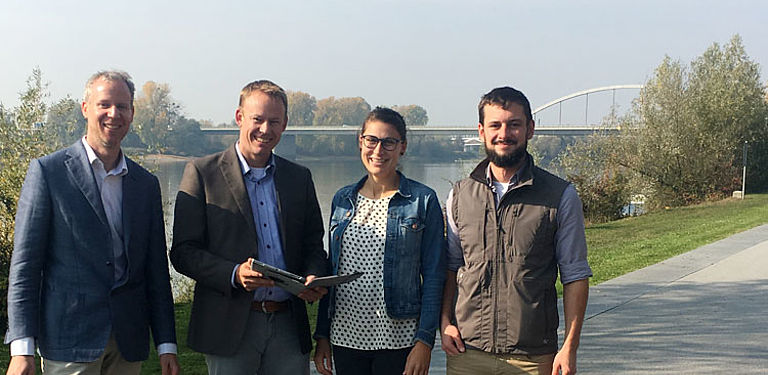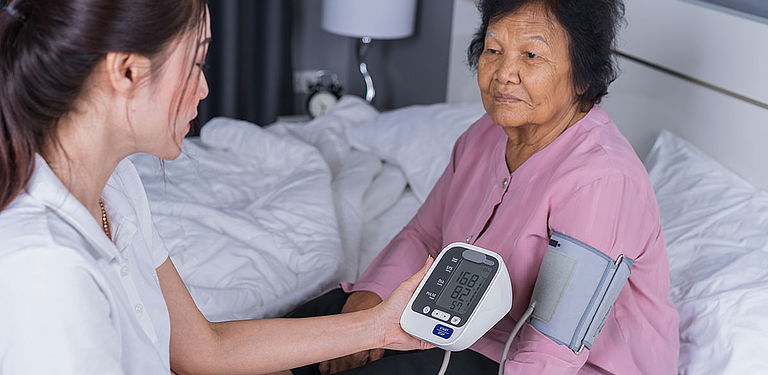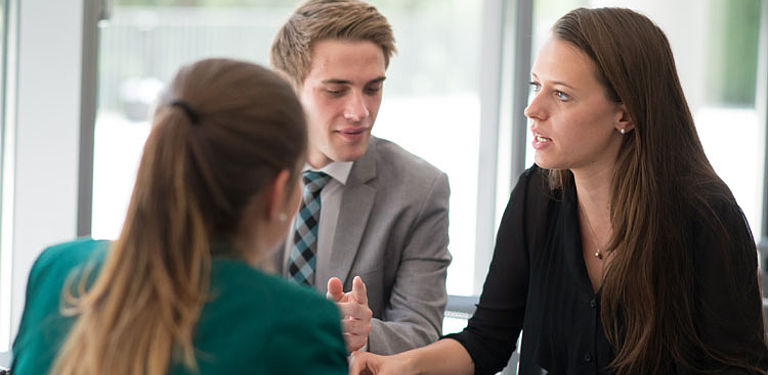A science in its own right
Research costs money. From their basic funding alone, universities would be unable to afford many projects. The University of Passau has recently scored an above-average success in applying for funding from the European Union – making the EU one of the University’s most important external sponsors. Behind this success there is scientific excellence, a great deal of work – and the helping hands of the Research Services Department.
Interview from the 01/2019 edition of Campus Passau magazine on "Universität für Europa. In Gegenwart und Zukunft" (Link to the magazine in german)
Everything starts with a genuinely good idea. But having arrived at such an idea, it is frequently the case that many scientists simply do not know which funding programme is available to help them realize it. “There are funding programmes that stipulate specified subjects – we call this the ‘top-down principle’ – and others that are non-subject-specific, which we refer to as the 'bottom-up principle’,” explains Sabine Wiendl, head of the Research Services Department and a specialist in European funding programmes. “Ideally, the scientists will already be familiar with others researching elsewhere in Europe, with whom they would wish to jointly implement their project.” Should this not be the case, the Transfer Centre at the University of Passau will assist in the search for suitable partners. The decision as to which programme is best suited to the project idea is taken by the relevant professor him- or herself, after seeking advice.
Everything starts with a genuinely good idea. But having arrived at such an idea, it is frequently the case that many scientists simply do not know which funding programme is available to help them realize it. “There are funding programmes that stipulate specified subjects – we call this the ‘top-down principle’ – and others that are non-subject-specific, which we refer to as the 'bottom-up principle’,” explains Sabine Wiendl, head of the Research Services Department and a specialist in European funding programmes. “Ideally, the scientists will already be familiar with others researching elsewhere in Europe, with whom they would wish to jointly implement their project.” Should this not be the case, the Transfer Centre at the University of Passau will assist in the search for suitable partners. The decision as to which programme is best suited to the project idea is taken by the relevant professor him- or herself, after seeking advice.
We are all working towards a common goal, which is the optimum realization of the project idea.
Sabine Wiendl, University of Passau
It sounds complicated, and it is: “This whole process is highly complex, and the competition can be fierce. So even very good applications do not always receive funding,” adds Sabine Wiendl. “In the past five years, however, the University of Passau has secured a total of 41 EU-funded projects, which is a tremendous success.” The University is currently cooperating with scientific institutions in 23 EU member states, most frequently with partners in Austria, the United Kingdom, Italy, Spain, Greece and the Netherlands. For us these projects are incredibly exciting. No matter which is your homeland, what language you speak or in which university department you work, we are all working towards a common goal, which is the optimum realization of the project idea.”
Horizon 2020 is the principal European Union programme designed to promote science, technological development and innovation. It is intended to boost European competitiveness, it is broad-based, and it finances projects in the field of basic research through to marketable innovation. A large part of the funding is given over to resolving significant challenges to society such as health, energy efficiency and the role of Europe in a changing world. As a matter of principle, the programme funds projects to be implemented by an alliance of at least three institutions (e.g. universities, colleges, research institutes, business enterprises) in three different EU member and associate states. Since 2014 the European Union has approved or signalled its forthcoming approval for 41 research alliances which include the University of Passau.
Through the European Regional Development Fund (ERDF), the European Union aims to support living conditions in the various regions of Europe. There are two programmes for this purpose: Investments for Growth and Jobs (IGJ) and European Territorial Cooperation (INTERREG V). The University of Passau is involved in particular in the INTERREG V A programme which supports cross-border projects with partners in Austria or the Czech Republic.
Erasmus+ provides research funding, for example for “Jean Monnet Activities”. These are projects aimed at developing and promoting excellence in education and research in the field of EU studies.
Ideally, the European Union will fund 100 percent of the project costs incurred by the University of Passau and also grant a lump sum to cover so-called indirect expenses such as electricity, heating and telephone costs. This is not always the case, however. Under certain programme strands, the European Union will only fund between 50 and 85 percent of project costs. The University of Passau must then contribute towards the costs – “which in the case of major projects in particular are not always easy to cover,” as Sabine Wiendl knows.
Nevertheless, the University has, by international standards, an above-average success rate in applying to EU programmes: “The DFG-Förderatlas 2018, the annual German Research Foundation university funding scorecard, lists Passau among the top twenty German universities in receipt of funding for information and communication technologies under the EU Horizon 2020 programme. Consequently, the University of Passau is benefiting substantially from the EU funding programmes,” concludes Sabine Wiendl.
Katrina Jordan
For further information visit: https://www.uni-passau.de/en/research/research-services/








